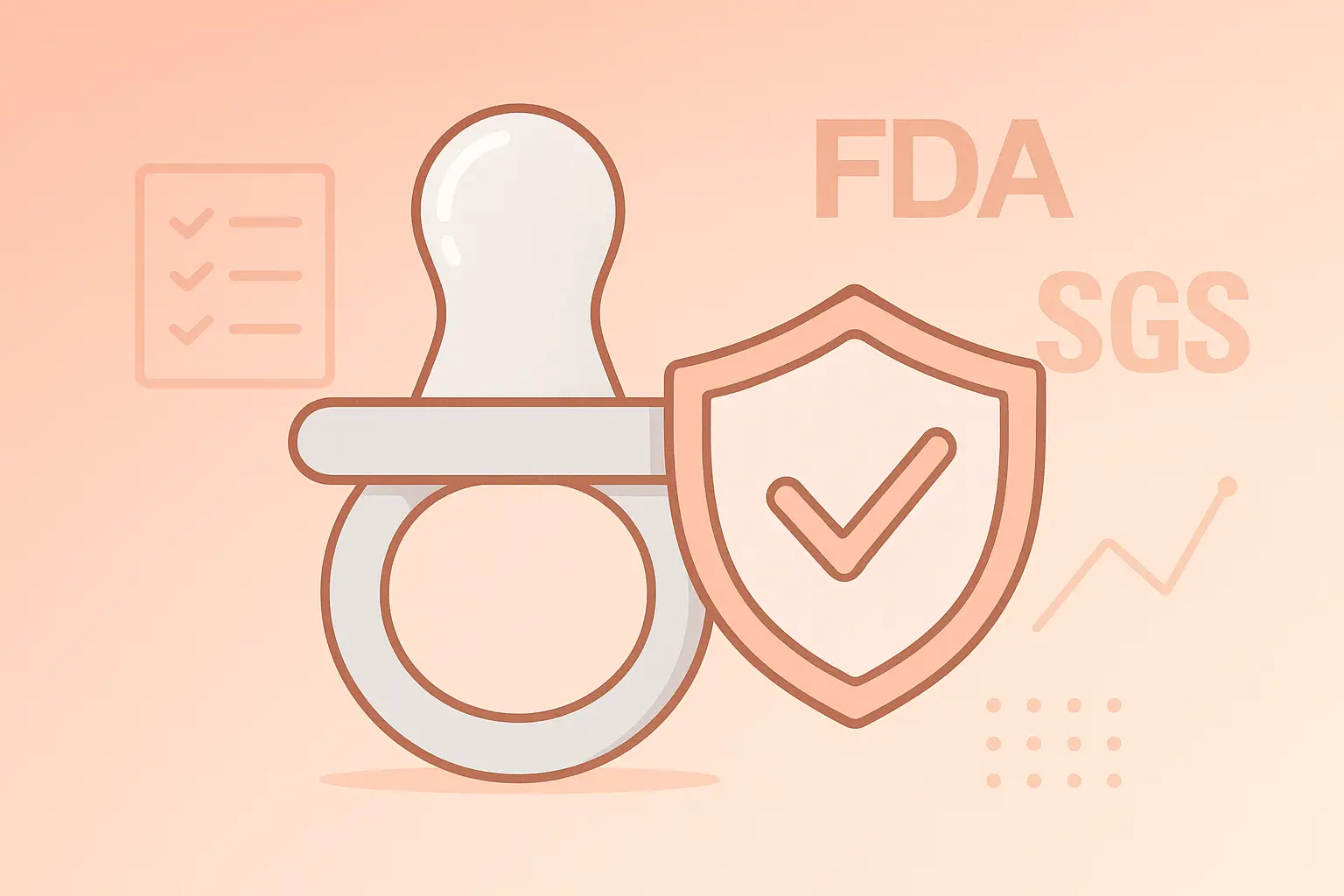Address
304 North Cardinal
St. Dorchester Center, MA 02124
Work Hours
Monday to Friday: 7AM - 7PM
Weekend: 10AM - 5PM
Address
304 North Cardinal
St. Dorchester Center, MA 02124
Work Hours
Monday to Friday: 7AM - 7PM
Weekend: 10AM - 5PM

As demand for silicone baby products surges in North America, B2B buyers and brand owners face increasing scrutiny from safety-conscious customers. To stand out in 2025, you must know how to validate your suppliers. In this article, we outline five critical safety and quality checks for baby-grade silicone procurement, blending industry insight with real user concerns from parenting forums. Use this as a checklist to vet suppliers confidently and build trust with your clients.
A foundational principle: your silicone must be **food grade and free of harmful substances**. Always require Certificates of Analysis (CoA) for heavy metals, residual monomers, and complete compositional breakdowns. Qualified baby-grade silicone should exclude BPA, PVC, phthalates, and other hazardous additives.
In 2025, the North American silicone baby product market is expected to grow rapidly, supported by heightened consumer awareness of safety and non-toxicity. :contentReference[oaicite:0]{index=0}
Baby products must endure sterilization, freezing cycles, UV exposure, and repeated temperature shifts. Suppliers should provide test reports including thermal cycling, UV aging, and long-term stability. That ensures materials won’t become brittle, degrade, or emit unwanted compounds over time.
From parenting forums, one recurring complaint is: silicone utensils retain soap or plastic tastes after washing. > “Spoiler: … every bite tasted like soap.” :contentReference[oaicite:1]{index=1}
As a buyer, demand VOC emission data and odor tests after repeated cycles. Ask how suppliers minimize residual volatiles and whether they perform “flavor absorption” assessments, especially for use in baby feeding tools.
While flexibility is important, durability is non-negotiable. Request data on tensile strength, tear resistance, fatigue life, and batch consistency. A recalled case in late 2024 involved silicone baby spoons breaking apart mid-use, creating choking hazards. :contentReference[oaicite:2]{index=2}
That instance highlights that weak mechanical performance can backfire significantly for a brand. When possible, run your own stress tests on samples across batches.
Validations by renowned labs (SGS, Intertek, etc.) carry weight in U.S. and Canadian markets. Required tests should include migration studies, heavy metal content, cytotoxicity, and mechanical stress under aging. Make sure suppliers’ documentation aligns with both FDA and Canadian regulations where applicable.
In December 2024, **Melii baby silicone spoons** were recalled over choking risk, as handles broke apart under use. :contentReference[oaicite:3]{index=3} This incident underscores how even simple utensils demand rigorous safety vetting.
Here is a streamlined approach to vetting silicone suppliers:
For B2B buyers in the U.S. and Canada targeting the baby products market, being meticulous in supplier validation is essential. Focus not just on meeting standards, but exceeding them in odor control, aging resilience, mechanical strength, and documentation. This attention to detail can become your competitive advantage and cornerstone of trust with your customers.
If you’d like help developing a custom testing regimen for your silicone baby product line, or evaluating sample data from multiple suppliers, feel free to contact us. We’re committed to supporting your sourcing with integrity, expertise, and care.